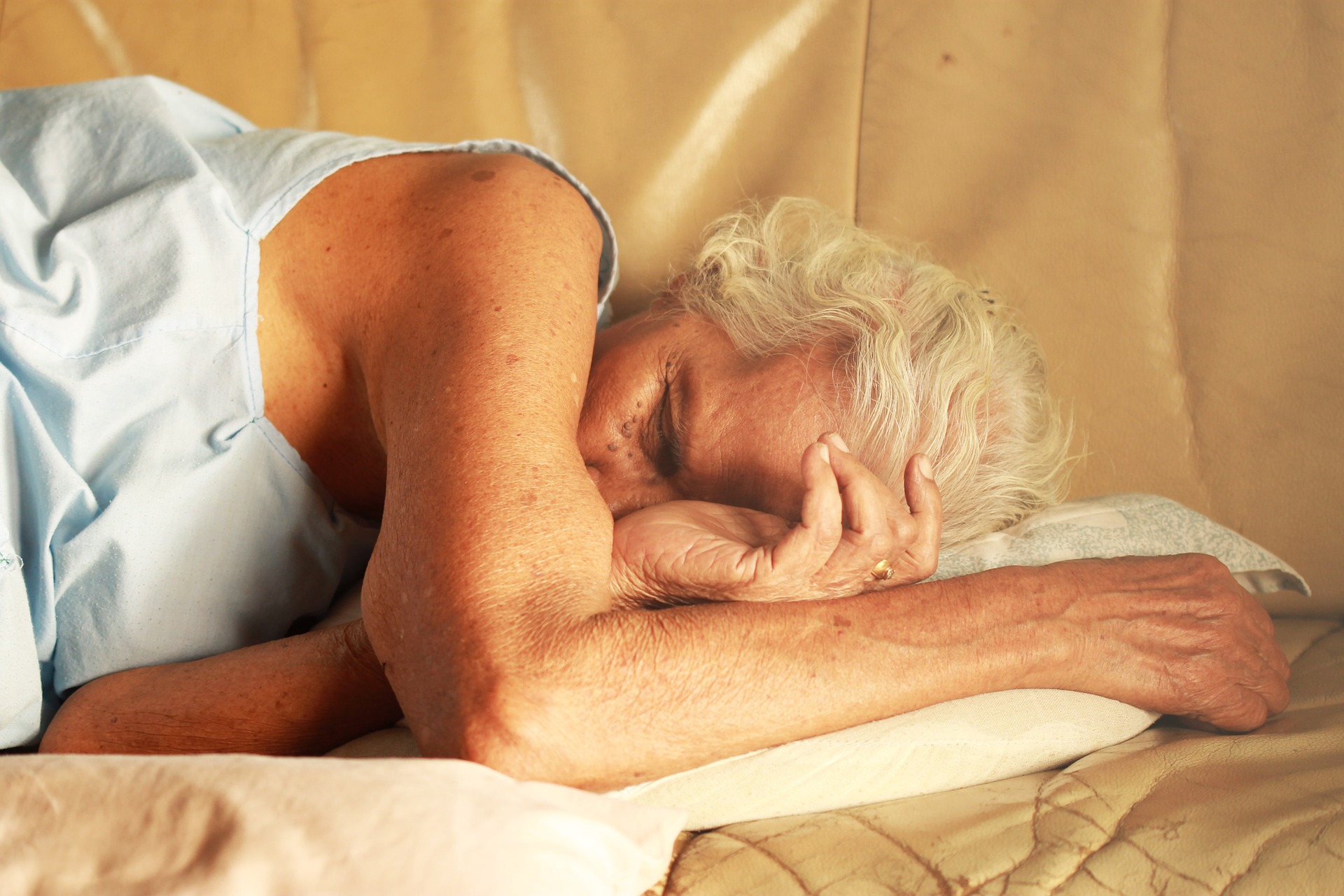One of the most frustrating things that even healthy seniors face is insomnia. Your body is tired, your mind is tired, and you can’t wait to lie down and get some sleep – but sleep just will not come. Lack of sleep is not only frustrating, it can severely impact a person’s mood, health, and ability to combat illness. That is why is so important for those struggling to sleep to find an effective way to fight insomnia.

As we age, both the quality and quantity of sleep deteriorates for many people. According to the Sleep Foundation, by the time we reach middle age, we begin to lose nearly a half-hour of nightly sleep with each decade that we age. Worry and anxiety also add to the problem of insomnia, therefore we saw a huge spike in insomnia over the course of the last several years during the pandemic.
Insomnia Defined
Insomnia is a sleep condition that can make it challenging to fall or stay asleep. The disorder can also cause an individual to wake up too early or make it hard to fall asleep again once awake. Insomnia can impact not only your energy levels but also your overall state of mind and mood. Because those impacted by insomnia may not be able to regulate their emotions, insomnia can influence every aspect of their lives.
Some common effects of insomnia include:
- Trouble falling asleep
- Waking up too many times during the night
- Waking up too early in the morning
- Feeling exhausted and not well-rested after a night’s sleep
- Fatigue or sleepiness throughout the day
- Irritability, mood swings, depression or anxiety
- Difficulty staying alert or focusing on a task
- Difficulty with memory
How Aging Affects the Sleep Condition
Insomnia becomes more frequent with age for a few main reasons.
Sleep Pattern Changes: Deep sleep is less common as you grow older, so the potential of being woken up increases – and it can be more difficult to fall back to sleep. It is a myth that older adults need less sleep than they did when younger. Seniors need the same amount of sleep as younger adults, but their internal clock oftentimes makes them stay up later and wakes them up earlier in the morning.
- Drugs and Medications: Senior citizens generally take more medications than when they were younger and many prescription medications can make sleep more challenging to achieve.
- Changes in Activity Level: Seniors are often less physically active and socially engaged. Doing less during the day can make it more difficult to fall asleep and stay asleep.
Ways To Fight Insomnia
Here are a few tips to battle insomnia and get the rest you need.
- Establish a routine – try to wake up and go to bed at the same time daily.
- Create a comfortable bedroom that encourages rest and sleep.
- Reserve your bedroom for sleep only, if possible – no computers or TV-watching.
- Develop a bedtime ritual, involving soft music, a warm bath, or some book reading. The same activity each night at bedtime helps to cue your brain that it’s time to go to sleep.
- Consult with your physician about any medications that may be causing insomnia.
- Avoid naps during the day if possible.
- Avoid eating too much or too close to bedtime.
- Staying physically and socially active every day.
A Banyan Residence is a memory care and assisted living facility in Venice, Florida.
